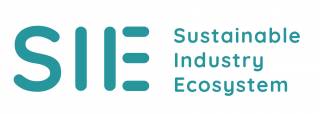Tampere University
Tampere University brings together research and education in technology, health and society. Our collaboration with our partners is built on our strengths, unique combinations of scientific disciplines and applied expertise. We are working together to build a sustainable world. We develop solutions to tackle climate change, protect the natural environment and improve the well-being and sustainability of societies. There are 21,000 students and close to 4,000 staff members at Tampere University.
Tampere University is the coordinator of SIE consortium.
Tampere University of Applied Sciences
Tampere University of Applied Sciences (TAMK) profiles itself as a university of applied sciences focusing on learning for working life and applied research. TAMK can also respond to changing competence needs of working life in the manufacturing industry supported by its continuous learning possibilities. The RDI activities conducted in TAMK’s premises supports and produces new knowledge for the Ecosystem operating in the manufacturing industry in the field of applied sciences and practical testing.The objective is to increase the life-long learning possibilities for industry and utilisation of pilot lines for the education and R&D&I activities.
TAMK leads Work Package 5: Interaction, communication and dissemination.
VTT
Owned by the Finnish state, VTT is one of Europe’s leading research institutions. VTT’s task is to advance the utilisation and commercialisation of research and technology in commerce and society. Through scientific and technological means, VTT turns large global challenges into sustainable growth for businesses and society. Its research is guided by global challenges: climate action, resource sufficiency, good life, safety and security and industrial renewal.
The seven challenges VTT is focused on to create sustainable growth are: Carbon neutrality, Productivity leap, Societal resilience, Quantum leap, Super-performing materials, Superior digital systems and Synthetic biology. See more at VTT’s website.
VTT leads Work Package 1: Community building.
LUT University
LUT University is a pioneering science university in Finland, bringing together the fields of technology and business since 1969. Our international community is composed of approximately 6,500 students and experts engaged in scientific research and academic education. LUT University has a working community of approximately 1000 staff members. We produce problem solvers, and we provide solutions to global environmental and economic challenges, guided by our System Earth strategy we seek to improve the sustainable management of water, air, energy and business.
LUT’s MORE SIM Research Platform is a multidisciplinary group formed around excellence in modelling, simulation and the application of digital industry technologies for sustainable business impact. MORE SIM provides a high-quality research group that combines technical and business research in the areas of Industry 5.0 Ecosystem, Autonomous Machines and Fleets, Regenerative Industry, Digital Humans, and Virtualized environments. MORE SIM researchers have built experience in artificial intelligence, digital twin technology, physics-based modelling and simulation, open innovation, asset management and related innovation management topics through continuous research and joint projects with leading Finnish industry companies.
LUT leads Work package 4: Pilot Lines and Green and Digital Toolboxes.
University of Vaasa
University of Vaasa (UWASA) advances competitiveness, innovation and sustainable development in business, technology, and society – and is a trusted and valued partner within both regional, national and international innovation ecosystems. The University is located at the heart of Northern Europe’s largest energy and environment business cluster called EnergyVaasa.
UWASA considers advancing the renewal of the energy sector and combatting climate change as a core part of its mission as well as digitalisation as part of the sustainable industry. One of UWASA’s main strategic focus area of research is energy and sustainable development. The Digital Economy research platform together with energy technology and business oriented VEBIC platform are the core research groups from UWASA in SIE and they work on enabling advances in the modern ICT applications for the energy sector especially targeting green and carbon neutral solutions and for the manufacturing industry targeting intelligent, sustainable solutions.
UWASA’s new smart grid laboratory FREESI provides excellent facilities to seek new innovations especially relating to future power grids and the Technobothnia Technology Center in Vaasa serves the EnergyVaasa R&D&I needs among others.
University of Vaasa leads Work Package 2 – Core Competence Base in SIE.

